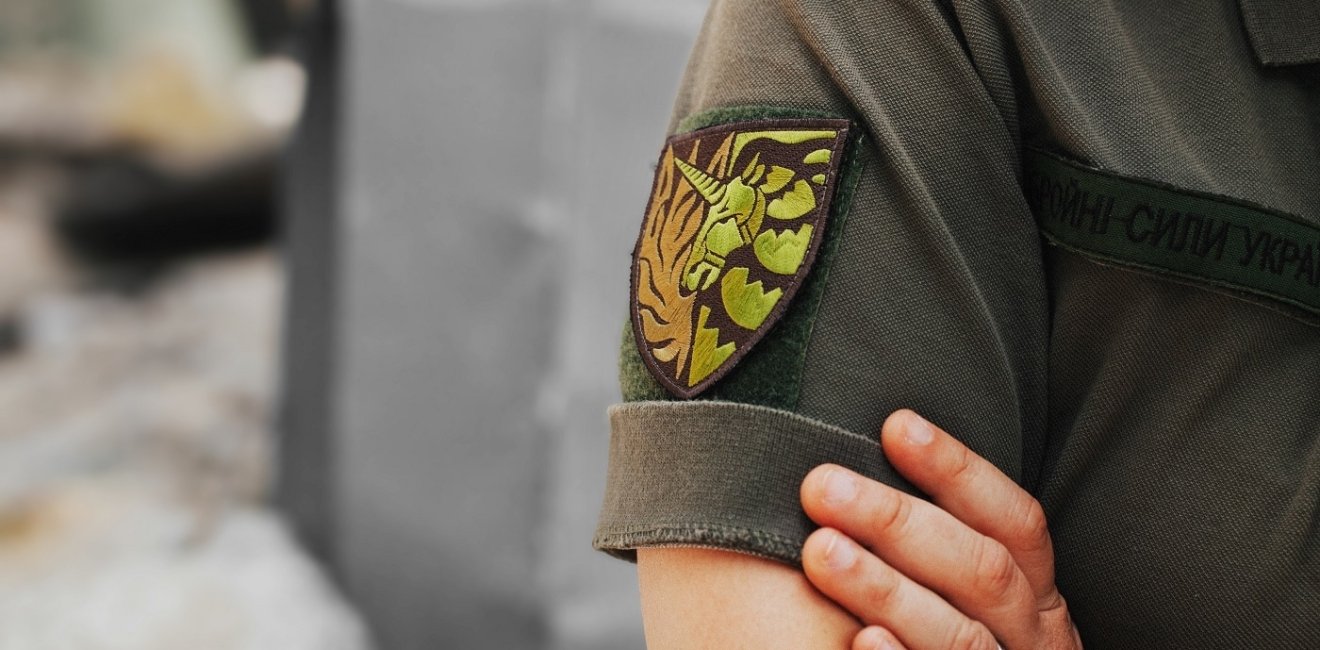
A blog of the Kennan Institute
“The war in Ukraine, it’s not just a war between Russia and Ukraine. It’s a war between totalitarianism and democracy. It’s a war between homophobia and LGBT rights. It’s a war between death and life.” Borys, a twenty-seven-year-old Ukrainian soldier, delivered this stark assessment to Openly News.
Homophobia has remained common in the post-Soviet space. It is a commonplace to say that Russia’s invasion of Ukraine is a struggle between authoritarianism and the rights of free people to govern themselves. Less well known is the marked divergence in equality for LGBTQ+ persons between countries that once held allegedly similar views.
In Ukraine, the fact that many LGBTQ+ persons have taken up arms and joined the military and supported the war in other ways is contributing to rapidly changing attitudes.
This stands in marked contrast to the state of affairs in Russia, where the Kremlin focuses precisely on further isolating and attacking LGBTQ+ people in Russia and in the occupied regions of Ukraine. This serves Russia’s geopolitical interests and, more narrowly, the interests of President Putin in trying to gain acceptance for his war by cloaking himself in “traditional values.”
Some History
After the fall of the Soviet Union, both Russia and Ukraine legalized gay relationships, despite having extremely traditional cultures relative to most European countries’ cultures. In the years that followed, however, LGBTQ+ rights did not markedly improve in either country. In 2011, when U.S. secretary of state Hillary Clinton declared “gay rights are human rights, and human rights are gay rights,” then secretary general of the Council of Europe Thorbjørn Jagland called out Ukraine and Russia for introducing anti-LGBTQ laws. He remarked that both countries were pursuing a path that violated basic human rights and posed “a setback to the progress we have achieved in promoting and protecting human dignity.”
The constitutions of both countries prohibit gay marriage. Russian president Vladimir Putin has routinely villainized LGBTQ+ persons and LGBTQ+ groups’ efforts to achieve equality in his push for “traditional family values.” On the day that the Russian Justice Ministry proposed outlawing the international LGBTQ+ “movement” (which does not exist as such), Putin spoke at a forum, stating “[LGBTQ+ persons are] also part of society, this is what people live for. It’s bad only if they are the only ones to win the competition.”
The ministry’s proposal was subsequently adopted. Numerous LGBTQ+ bars and clubs were raided, patrons were photographed, and their presence was documented by Russian police.
The Nash Svit LGBT Human Rights Center in Kyiv has documented dozens of attacks on LGBTQ+ persons by Russian forces, as well as incidents in Ukrainian-controlled territory. In Ukraine, even today LGBTQ+ Ukrainian military personnel do not have access to the same benefits as their heterosexual counterparts, including the right to make medical decisions for their partner, family rights, and the right to be notified if their partner is killed or injured.
Changing Attitudes in Ukraine
During the initial invasion of Ukraine in 2014, misinformation spread that LGBTQ+ persons were not participating in the defense of Ukraine. To counter this charge in a publicly visible way, LGBTQ+ members of the Ukrainian Armed Forces adopted the unicorn as a symbol, sewing a green-and-brown emblem into their camouflage uniform, just below the Ukrainian flag. Such groups as the Union of LGBT Military (an association of Ukrainian military, veterans, and volunteers) have helped highlight the contributions of LGBTQ+ persons to the war effort, both fighters and noncombatants.
Support for civil unions in Ukraine is low but increasing. Recent polling placed support at 37 percent of respondents (42 percent were against, and the remaining were undecided); for comparison, polling from 2016 found a large majority not in support of LGBTQ+ rights.
In 2022 Ukrainian president Volodymyr Zelensky responded to a citizens’ petition requesting same-sex marriage by noting that the constitution’s definition of marriage could not be changed during wartime, but also that “each citizen is an indivisible part of civil society, to whom all rights and freedoms fixed in the Constitution of Ukraine extend,” in this way leaving the door open to civil unions. In March 2023 a bill was introduced in the Ukrainian parliament to legalize same-sex civil unions.
European Values
While attitudes are slowly changing, the European Court of Human Rights has taken bold steps to highlight the situation for LGBTQ+ persons in both Ukraine and Russia. A ruling from the European Court of Human Rights (ECHR) found that victims of grave violence in Chechnya had been targeted “solely on account of their sexual orientation.” Russia was removed from the ECHR following the invasion of Ukraine. Ukraine has been a member since 1997.
In June 2023, the same court found that Ukraine had failed to provide equal protections for LGBTQ+ couples as it did for heterosexual couples, violating the European Convention on Human Rights. In October the Ukrainian Justice Ministry approved a bill that would establish “voluntary family unions” for couples regardless of their gender.
Additional cases from the ECHR highlight the strong support for LGBTQ+ individuals in Europe, including legal recognition of their partnerships. Ukraine will have to adopt these norms on its path to Europe.
Equality for All
Russia’s treatment of its LGBTQ+ population is alarming and runs counter to basic values of equality. The road to justice and equality in Russia has been made much longer and harder under Putin, but the United States and the EU must continue to support LGBTQ+ and human rights groups in Russia wherever possible.
In large part, the motivations of the Russian government for encouraging homophobia come down to two: to create divisiveness in Russian society and to burnish Putin’s credentials as a leader committed to “traditional values,” in this way building support for his repressive regime.
Such efforts are working. A 2019 survey from the Pew Research Center found that acceptance of homosexuality had decreased in Russia from 20 percent to 16 percent over the proceeding decade. The Levada Center, one of the more reliable polling sources in Russia, pegged Putin’s approval rating at 83 percent as of December 2023.
The UNHCR has provided aid and support to LGBTQ+ persons in Ukraine affected by Russia’s war. The need among LGBTQ+ Ukrainians will only increase as the war continues, and during its aftermath. It is important to ensure that LGBTQ+ Ukrainians are able to live without fear of persecution and to be equal under the law in a free Ukraine.
International support in this effort includes renewing programs such as PEPFAR that have been critical to supporting LGBTQ+ Ukrainians living with HIV. Enhanced military and humanitarian aid to the Ukrainian government and people can help lead to a positive outcome for Ukraine. A free Ukraine will be friendlier to and more accepting of LGBTQ+ people.
The opinions expressed in this article are those solely of the author and do not reflect the views of the Kennan Institute.
Author


Kennan Institute
After more than 50 years as a vital part of the Wilson Center legacy, the Kennan Institute has become an independent think tank. You can find the current website for the Kennan Institute at kennaninstitute.org. Please look for future announcements about partnership activities between the Wilson Center and the Kennan Institute at Wilson Center Press Room. The Wilson Center is proud of its historic connection to the Kennan Institute and looks forward to supporting its activities as an independent center of knowledge. The Kennan Institute is committed to improving American understanding of Russia, Ukraine, Central Asia, the South Caucasus, and the surrounding region through research and exchange. Read more

Explore More in The Russia File
Browse The Russia File
Chechnya as a Model of Modern Russia

Russia’s Indigenous Communities and the War in Ukraine

Gas and Power in a Changing US–Russia Relationship

